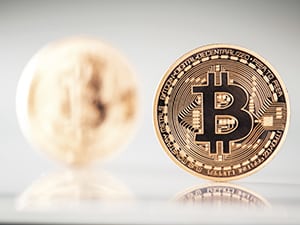The virtual world of fledgling would-be currency Bitcoin has become even more confusing as US financial regulators have moved to warn investors about the risk of fraud and scams.
The Securities and Exchange Commission is warning investors to watch out for crooks when dealing with Bitcoin.
But rather than underscore the US government’s concerted drive to try to outlaw the virtual currency, the warning serves as a signal of growing official acceptance of Bitcoin and other virtual currencies.
The warning also came in the wake of serial entrepreneur Sir Richard Branson taking a multi-million pound stake in the currency and a payment processor for Bitcoin transaction.
The statement has added to the confusion of investors concerned about the status of Bitcoin after a series of collapses of online exchanges, hackers stealing millions of pounds worth of Bitcoin from online ‘wallets’ and accusations the currency was a front for money laundering for organised crime.
Growing popularity
Add to that the debacle of the recent Bitcoin annual conference that descended into a farce of walk-outs and resignations over the personal reputations of some of the currency’s front-men, and investors must be thinking they are mad to even consider putting cash into the unknown.
But the fact is they are.
Bitcoin is growing in popularity, with more retailers accepting payments online in the currency and tax authorities the world over changing rules to handle taking a slice of investment profits.
The currency has fluctuated wildly in value since coming online in 2009 – and is currently worth around £650.
The originators let users generate Bitcoin by solving complex mathematical problems but have a top limit of issuing 21 million units.
Lack of regulation
The problem with Bitcoin for investors is regulation and governance. The Bitcoin conference, run by a forum representing the currency worldwide is disjointed and lacks financial experience, while the currency has no regulator and is not responsible to any central bank or government.
In a way Bitcoin is a virtual free spirit with no governance that rises and falls seemingly without rhyme or reason.
Governments are stopping short of giving Bitcoin a currency status which is a further worry for investors.
The issue for investors is currency transactions in most countries are exempt from tax, but commodity transactions – which is the general way Bitcoin is seen by governments – are seen as chargeable gains and face tax.
